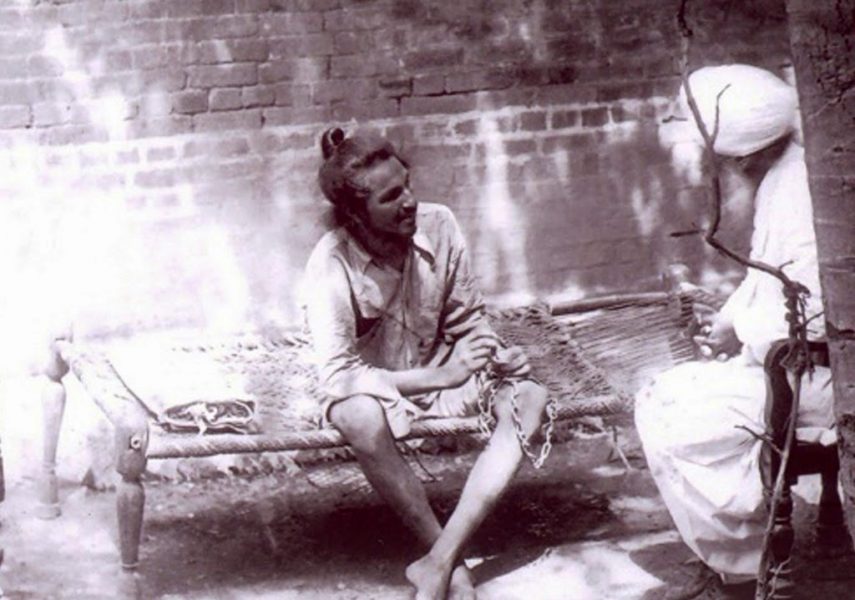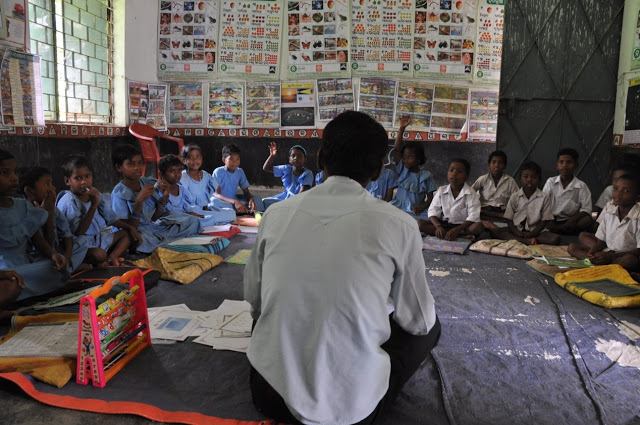Youth is the time when important life decisions must be made and if energies are not channelized well during this period one may face a lifetime of regrets and unhappiness. It is at this time that the presence of an understanding master transforms one’s vision of life and helps discover one’s inner potential.
Samhita K is a Research Associate in the Gifted Education Programme at National Institute of Advanced Studies, IISc. Campus, Bangalore.
If you’re complaining about having grown up, want to channelize your energy in the right direction, are lamenting about life in general because it seems like an insurmountable hurdle, you may be prey to the quarter-life crisis. Quarter-life crisis is a period of life ranging from the twenties to the thirties, in which you begin to feel doubtful about your life, brought on by the stress of becoming an adult. Victims of Quarter-life crisis often seek the syntonic value of independence and stable commitments.

The twenties are the self-defining decade of one’s life and one may want to carve a niche for oneself, prove one’s self-worth to the world and perpetually be in dire need of a sense of entitlement. Since this is a challenging and transient stage, one may be lost in a swirl of confusion and anxiety. Feelings of uncertainty, indecisiveness, scepticism, disorientation, befuddlement and regret are some of the common characteristics of this crucial developmental period. In order to make one’s journey smoother, calmer and bearable, one may benefit greatly if one looks out for a mentor. Simply put, a mentor is an experienced and trusted adviser. A good amount of congruence between the mentor and the student has the potential to drastically transform the student’s life. A mentor has several distinct roles to play in the dynamics of the relationship. One definition of the process of mentoring is, ‚Mentoring is a relationship in which a more experienced or more knowledgeable person helps to guide a less experienced or less knowledgeable person.
‛ A mentor may be thought of as one’s godmother or godfather, or a rabbi who is watching over you and your progress. Mentors are perceived as invaluable assets because of the career and psychosocial support they provide. A mentoring relationship is a two-way street, with mentors themselves deriving a host of possible benefits as well, from personal satisfaction to career enhancement. Mentoring, by virtue of its nature, is a complex multidimensional phenomenon and requires dedication, sincerity, commitment and regular follow-ups. Mentors often encourage the exploration of ideas, risk taking, provide appropriate and timely advice, help the student or the protégé shift their mental context and confront negative behaviours. On the other hand, the protégé must demonstrate receptivity to feedback and coaching, accountability, responsibility, motivation and endurance in times of crises. Kathy Lacey, author of the book Making Mentoring Happen, says that in her early work developing mentoring programmes shortened the terms mentee and mentor to Tee and Tor.
These terms as described in the Oxford Dictionary are quite appropriate; a tee being a starting place and a tor being a rocky peak or high place. Mentors are people who make a significant difference to the lives of others, lifting them out of being ordinary and leading them to an almost magical transformation. The uniqueness of an exceptional mentor is that for the protégé the ‘chemistry’ falls perfectly in place. The mentoring process comprises the following: initial contact (which may serve as the trigger to the genesis of a mentor-mentee relationship), exploration (the process of seeking mutuality and compatibility), protocol (rules to be adhered to), identification of goals and objectives, approach and plans, working out strategies, execution of strategies, followed by monitoring, review and finally termination and moving on. A relationship and practice such as mentoring throws up a plethora of issues to be dealt with. Sometimes, the lines defining the dynamism of the relationship may be blur and one must know where to draw the line. Issues like the generation gap, clash of values and other such problems that surface must be addressed amicably. One important issue is the acceptance that as a mentor, not all efforts will materialize into success. Sunil Unny Guptan, author of Mentoring: A Practitioner’s Guide to Touching Lives calls this the ‘Sahir Ludhianvi Principle’. Abdul Hayie who wrote under the pseudonym of Sahir Ludhianvi has created verses with enormous profundity and some of his words reveal deep hidden meaning in ways that only poets can comprehend. Accordingly, when the mentor-mentee relationship is falling apart, the best that can be done is to give it an interesting twist, learn that the journey itself was rewarding and let it go. This is what Ludhianvi means to convey to the reader, when such a situation is encountered and the dream cannot be realized. Sunil Guptan warns the reader that the ‘Sahir Ludhianvi Principle’ must be the last resort, when every effort has come to naught. Mentoring is a complex business since it involves interpersonal interaction, coupled with augmenting one’s intrapersonal functioning. There are several intricacies and a humungous amount of detailing to be done in mentoring. The fact that dealing with people is a ‘complicated business’ is a universal truth. This is one of the reasons why seasoned and established professionals and wise people become mentors. There is no hard and fast rule that the mentor has to be in the same profession as that of the mentee. It would certainly be useful, but being from another profession is not a disqualifying factor. The mentor’s sagacity and the capacity to look beyond the limited confines of the profession are crucial in the process of mentoring. It is wise to seek a mentor with roughly the same vision and mission. Mentoring need not necessarily be oneon-one. Group mentoring is another viable option since it provides a social community with similar concerns and ambitions. The flipside of group mentoring is that there is little or no room for the customization of output for the individual. Apart from group mentoring, it is also a good idea to have multiple mentors, depending on one’s need and the willingness of the mentors to sign up for such a relation. In the Indian context, age does play a major role in commanding respect and having credibility. However, there is no hard and fast rule that the mentor ought to be older than the mentee. Although it might seem slightly odd and intimidating at first, both parties can derive meaning out of the relationship once the stereotypical notions of age as a barrier are broken. How does the whole process of mentoring relate specifically to the quarter-life crisis?
The fact that the twenties seem like an indomitable journey with an oceanic turbulence of emotional setbacks speaks volumes about the need to have a ‘godmother’ or a ‘godfather’ who enables one to journey through the rugged terrain. Hence, ever so often in the twenties, it is prudent to make a periodic check if you’re on the right track.
What crucial steps are you not taking at an impressionable age like this?
Do you want to try a different approach, expand your horizons, and enlarge the repertoire of your capabilities and skills? Do you want to live a life of fulfilment with minimal or no regrets?
If you find a mentor, you will be able to gain a fresh perspective, and learn how to strike a chord between all the significant areas of functioning namely, the personal, the interpersonal and the career/occupational areas. In addition, you will also be able to accelerate your personal growth and gain first-hand experience in a specific domain of knowledge. Ultimately, the ideal mentor will facilitate the ‘crossing of the bridge’ and help you tap the vast ‘reservoir of talent’ withinyou. And finally, you will not be rueful of your decisions, but will look back at this phase of life as a wonderful learning period.
This article is published in The New Leam, JUNE 2017 Issue( Vol .3 No.25) and available in print version. To buy contact us or write at thenewleam@gmail.com














